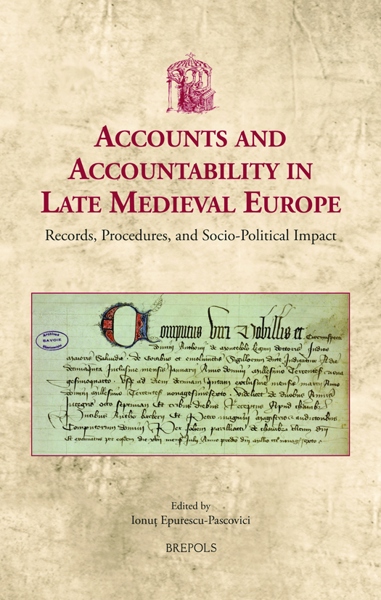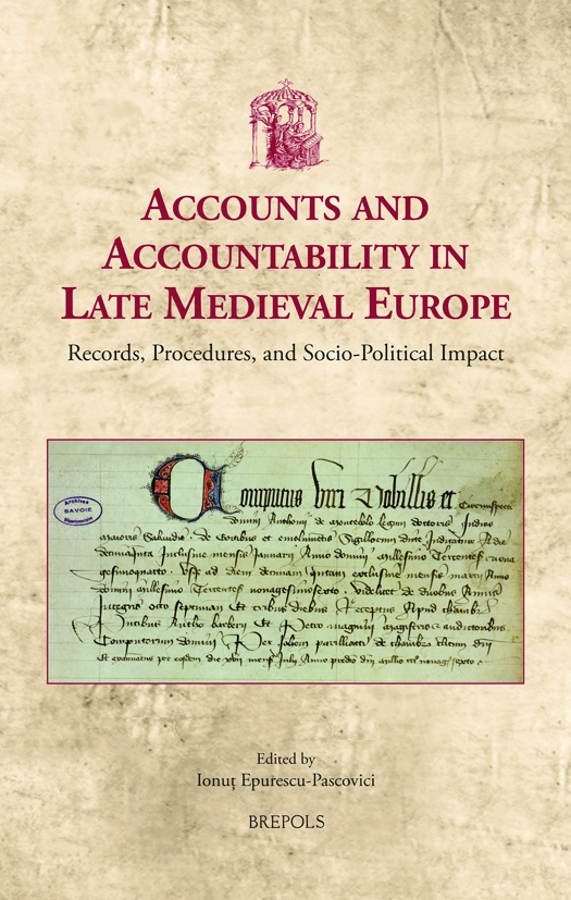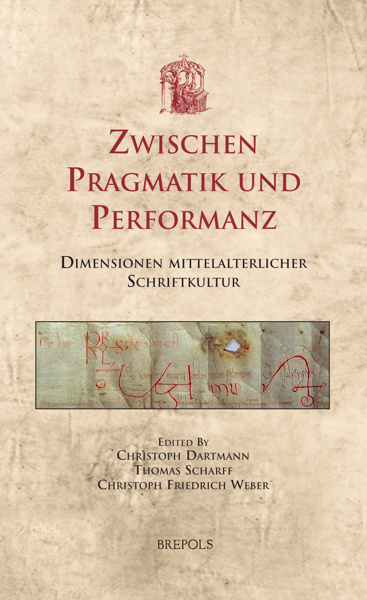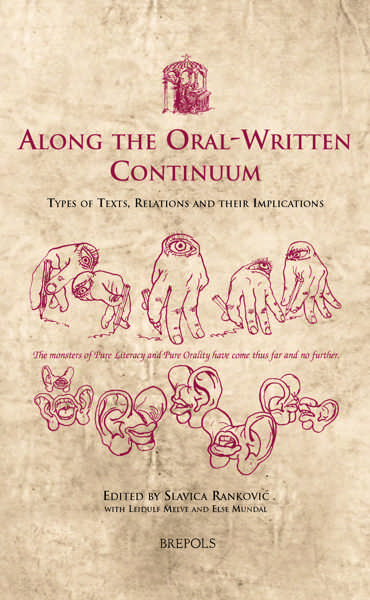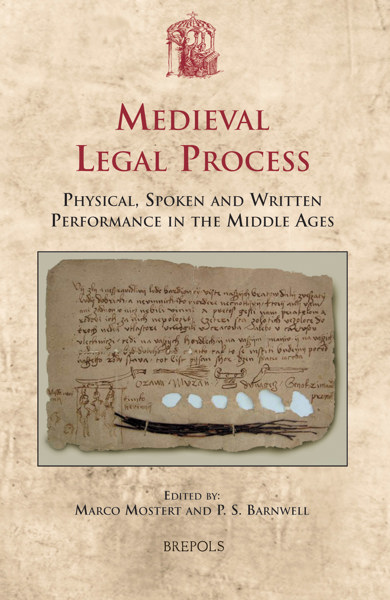
Accounts and Accountability in Late Medieval Europe
Records, Procedures, and Socio-Political Impact
Ionut Epurescu-Pascovici (ed)
- Pages: vii + 303 p.
- Size:156 x 234 mm
- Illustrations:5 b/w, 14 tables b/w., 3 maps b/w
- Language(s):English
- Publication Year:2020
- € 85,00 EXCL. VAT RETAIL PRICE
- ISBN: 978-2-503-58853-7
- Hardback
- Available
- ISBN: 978-2-503-58854-4
- E-book
- Available
Available in Open Access on BrepolsOnline
An interdisciplinary study of the development of institutional accountability in the later Middle Ages, highlighting innovations in auditing procedures, administrative professionalisation, and the political and social impact of the reforms.
« Cet ouvrage rassemble ainsi plusieurs études de grande qualité sur des corpus comptables médiévaux désormais systématiquement étudiés au prisme de leur matérialité. » (Julie Claustre-Mayade, in Francia Recensio, 1, 2021)
« Summa summarum: Der Band bietet nicht nur einen hervorragenden und aktuellen Einblick in die Forschung über und mittels spätmittelalterlicher Rechnungsüberlieferung. Die Beiträge bereichern und erweitern auch die Diskussion um verwaltungsgeschichtliche, quellenkundliche, wirtschafts- und sozialhistorische Ansätze und Analysemethoden, die über den jeweiligen regionalen Fokus hinaus nutzbar sind. » (Lienhard Thaler, in Mitteilungen des Instituts für Österreichische Geschichtsforschung, 129/2, 2021, p. 463)
“The fascinating interwoven tales across several contributions in this book provide illuminating contrasting treatments. The editor, Ionuț Epurescu-Pascovici, has done very well in establishing a recognisable foundation upon which to build the individual contributions (…) No contribution fails to deliver and the introductory chapter by Ionuț Epurescu-Pascovici merits considerable attention in its own right.” (Alan Sangster, in The Medieval Review, 11/02/22)
"In definitiva si deve plaudire all’iniziativa di raccogliere studiosi delle più varie formazioni e provenienze per analizzare un problema così stimolante sotto molteplici prospettive.” (Gian Paolo G. Scharf, in SOCIETÀ E STORIA, 174, 2021, p. 828)
Ionuț Epurescu-Pascovici has a PhD in medieval studies from Cornell University. He is currently the Principal Investigator of the European Research Council project ‘Castellany Accounts’ at the University of Bucharest.
Accounts and Accountability in Late Medieval Europe traces the momentous transformation of institutions and administration under the impact of accounting records and procedures, c. 1250–1500. The volume’s focus on the materiality and organising logic of a range of accounts is complemented by close attention to the socio-political contexts in which they functioned and the agency of central and local officials.
The volume is divided into three parts: the role of financial accountability in the political designs of late medieval states, the uses of accounts auditing and information management as tools for governance, and their impact on the everyday life of local communities. Covering both the centre and the periphery of medieval Europe, from England and the Papal curia to Savoy and Transylvania, the case studies evince the difficult passage from the early experiments with financial accounts towards an accountability of office.
Acknowledgements
From the Auditing of Accounts to Institutional Accountability in Late Medieval Europe — IONUT EPURESCU-PASCOVICI
Part One: Financial Accountability and Late Medieval Politics
The English Exchequer, the King, and the Counties from Reform to Civil War, 1258-1264 — RICHARD CASSIDY
Military Recruitment and Funding in Savoy: Piedmont and Chablais, Late-Thirteenth to Mid-Fourteenth Century — ROBERTO BIOLZI
Accountability in Building Projects in Piedmont under Philip of Savoy-Achaea: Administrative Experimentation and Political Consolidation — VITTORIA BUFANIO
Part Two: The Tools of Governance: Auditing, Information Management, and Budgeting
Auditing of Accounts as an Instrument of Royal Power in Catalonia (1318-1419) — ESTHER TELLO HERNÁNDEZ
From Auditing to Budgeting in Late Medieval Sicily: Institutions, Administrators, and Information Management — ALESSANDRO SILVESTRI
From Administrative Control to Fighting Corruption? The Procedural Steps of Accounts Auditing in the Papal State (Thirteenth to Sixteenth Century) — ARMAND JAMME
A Codicological Approach to the Auditing Process: the Duke of Burgundy’s Household Accounts during the Swiss Campaign (1476) — EKATERINA NOSOVA
The Rolls, the Prince, and their Depositories: The Archiving of Late Medieval Financial Accounts Reconsidered (Savoy, Mid-Fourteenth to Mid-Fifteenth Century) — GUIDO CASTELNUOVO
Part Three: Financial Accounts and Local Communities
Local Communities and Fiscal Reform in Late Medieval Savoy: Lords, Peasants, and Subsidies — NICOLAS CARRIER
A Century of Insults, Adultery, and Fight: Justice and its Administration in the Accounting Records of the Castellany of Pont-de-Vaux (Savoyard Bresse, 1274-1375) — AUDE WIRTH-JAILLARD
From Chirograph to Roll: The Records of Thirteenth-Century Anglo-Jewish Moneylending — DEAN A. IRWIN
Churchwardens and their Accounts in Transylvania, Fourteenth to Sixteenth Centuries: A Preliminary Assessment — ADINEL C. DINCÃ
List of Contributors
